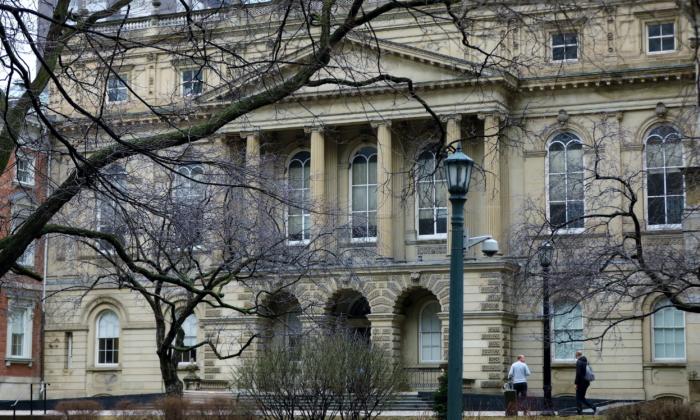Canada condemns suicide attack at Istanbul airport
OTTAWA—Canada is condemning the suicide bombing attack on Istanbul’s Ataturk airport that killed at least 36 people and wounded many others. Officials in Turkey are blaming the attack on three suspected Islamic State bombers.
Prime Minister Justin Trudeau said on Twitter that Canada “strongly condemns tonight’s deadly attack in Turkey,” adding that his thoughts and prayers are with the victims as “we stand with our allies against terrorism.”
Foreign Affairs Minister Stephane Dion also issued a statement strongly condemning the attack.
“We stand with the Turkish people as they deal with this most recent and appalling terror attack,” Dion said. “We reaffirm our commitment to work tirelessly in the fight against terrorism.”
Court approves extradition of suspected cyberbully in Amanda Todd case
AMSTERDAM—An Amsterdam court has approved the extradition of a Dutch man suspected of a string of crimes against British Columbia teenager Amanda Todd, who took her own life in October 2012 after being bullied online.
The Dutch Justice Minister now has to sign off on the extradition of Aydin Coban, but he will not be sent to Canada until after his Dutch trial on charges of sexual assault and extortion of 39 other victims is completed.
The Dutch case has been repeatedly delayed and the trial is not expected to resume until next year.
In Canada, Coban faces five charges connected to Todd, including extortion, possession of child pornography, and attempting to lure a child online.
Aboriginals victims of crime more often than non-aboriginals: StatsCan
OTTAWA—A new report from Statistics Canada suggests aboriginal Canadians were nearly three times as likely to experience sexual assault in 2014 as their non-aboriginal counterparts.
The report, titled “Victimization of Aboriginal People in Canada,” found 58 incidents out of every 1,000 respondents, compared with 20 incidents per 1,000 non-aboriginal people.
It also found nine percent of respondents reported experiencing spousal violence that year, more than twice the rate of four percent in the non-indigenous population.
The report compiled statistics on eight specific types of crime: sexual assault; robbery; physical assault; theft of personal, motor vehicle, or household property; breaking and entering; and vandalism.
The report surveyed 33,127 respondents from provinces across Canada and 2,040 in the territories.
Sage grouse making tiny comeback in Alberta, Saskatchewan
EDMONTON—A classic prairie bird is slowly re-establishing itself in its grassland home, two years after the sage grouse became one of the first species to get emergency protection from the federal government.
Sage grouse numbers have almost quadrupled since 2014, with nearly 80 male birds in southern Alberta and Saskatchewan.
The protection order—which prohibited destruction of any more grouse habitat, banned new roads, and controlled noise—stemmed from legal action taken by environmental groups.
Jordan Ignatiuk of Nature Saskatchewan says weather over the last couple of years has also helped the grouse’s burgeoning recovery.
The sage grouse is famous for its mating displays, in which the males inflate their chest and dance to attract females.
Quebec has lost 600,000 residents to other provinces since 1971: Report
MONTREAL—A new report by the Fraser Institute, a right-of-centre think-tank, says Quebec has lost almost 600,000 residents to other provinces since 1971—the highest out-migration rate in the country.
The report studied interprovincial migration between 1971 and 2015 and concluded Quebec is the only province in Canada to have suffered a net loss every year in that period.
Since 2003, however, Ontario has had a total of more than 40,000 additional people leave the province when compared with those leaving Quebec. Most of them went to Alberta and British Columbia.
Quebec’s migration losses were disproportionately among young people starting off their careers.
With files from The Canadian Press





